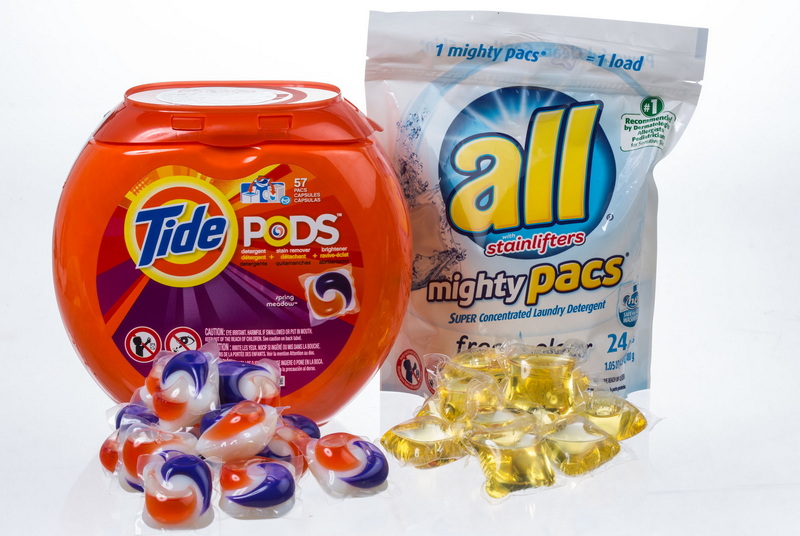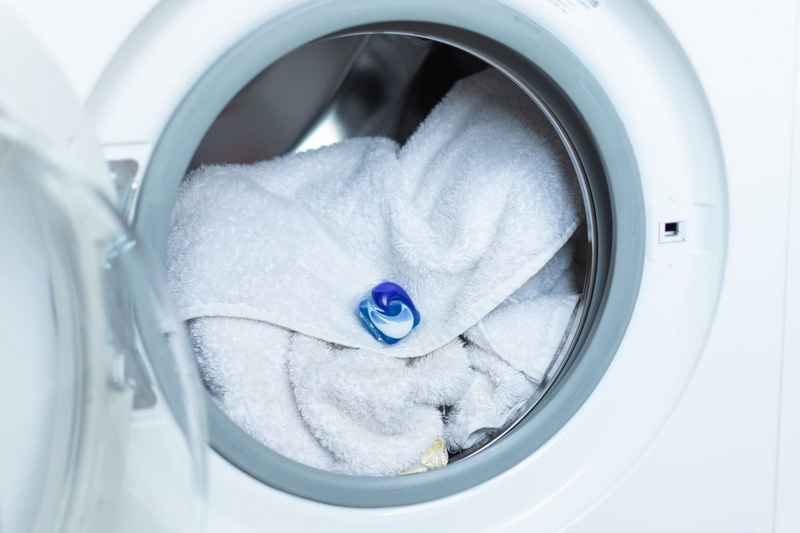Dongguan UFine Daily Chemical Co.,Ltd.
- All
- Product Name
- Product Keyword
- Product Model
- Product Summary
- Product Description
- Multi Field Search
Views: 222 Author: Tomorrow Publish Time: 10-23-2025 Origin: Site











Content Menu
● Understanding Laundry Pods and Their Risks
● Statistics on Laundry Pod-Related Deaths
● Causes and Mechanisms Behind Laundry Pod Deaths
● Demographics and Behavioral Factors
● Prevention Strategies and Industry Responses
● Medical Treatment and Emergency Response
● Impact on Families and Communities
● Frequently Asked Questions (FAQ)
>> 1. How many laundry pod deaths have been reported in the last decade?
>> 2. What makes laundry pods dangerous if ingested?
>> 3. Are children the main victims of laundry pod poisoning?
>> 4. What should I do if someone ingests a laundry pod?
>> 5. Have manufacturers taken steps to reduce laundry pod-related deaths?
Laundry pods have become a popular household product due to their convenience and effectiveness in cleaning clothes. However, their colorful, candy-like appearance has raised significant safety concerns, particularly regarding children and accidental ingestion. The question, "How many laundry pod deaths?" highlights a critical public health issue that demands detailed exploration. This article examines the number of deaths associated with laundry pods, factors contributing to these incidents, prevention efforts, and what can be done to minimize future risks.

Laundry pods are concentrated detergent packets enclosed in soluble film wrappers. They dissolve quickly in water, making laundry and cleaning easier. Despite their benefits, these pods contain potent chemicals such as surfactants, enzymes, and other compounds harmful if ingested or improperly handled.
The appealing colors and small size make laundry pods particularly attractive to young children, leading to accidental poisonings. Adults can also be at risk, especially if confused with other products, improperly stored, or misused.
Reliable data on laundry pod deaths vary by country and source, but most reports highlight the relatively low number of fatal cases compared to the number of exposures and emergency visits.
According to poison control centers in the U.S., thousands of incidents involve laundry pod exposures every year, mostly among children under five. However, fatal outcomes are rare. Studies and poison control reports from the past decade indicate a very small number of deaths directly linked to laundry pod ingestion.
For example, the American Association of Poison Control Centers (AAPCC) tracked laundry detergent pod exposures and documented fewer than 10 fatalities associated with such ingestion cases over the last 10 years. Most deaths involved significant delays in medical treatment or complications from aspiration of the liquid contents into the lungs.
Internationally, laundry pod-related deaths are also rare but reported sporadically. Countries with widespread use of these products sometimes see accidental deaths, but the exact global number remains unclear due to inconsistent reporting standards.
To understand why laundry pod ingestion can be fatal, it is crucial to explore the physiological effects and complications:
- Chemical Toxicity: Laundry pods contain highly concentrated detergents and surfactants that disrupt cell membranes, irritate mucous membranes, and cause chemical burns.
- Aspiration Pneumonitis: One of the most serious risks occurs when the liquid detergent enters the lungs during ingestion or vomiting, causing inflammation, swelling, and respiratory failure.
- Airway Obstruction: The pods' gelatinous coating can block airways if inhaled accidentally.
Complications arise rapidly, emphasizing the importance of fast and correct medical response to suspected ingestion.
Children under five years old are at the highest risk due to their natural tendency to explore objects orally. Laundry pods resemble candy or toys, which increases risk. Adults under influence of alcohol or with cognitive impairments have also reported accidental ingestion.
Psychological factors also play a role in some cases. A small number of teenagers and adults have intentionally ingested laundry pods in challenges or as a form of self-harm, further complicating prevention efforts.

Manufacturers have updated packaging to be child-resistant, making it harder for young children to open pods without adult supervision. This includes resealable containers, opaque packaging, and locked lids.
Governments, consumer groups, and companies run awareness campaigns to inform parents and caregivers about storage safety and the dangers of laundry pods. Messages emphasize keeping pods out of reach and sight of children.
Some countries have introduced regulations requiring clear warning labels, opaque packaging, and limits on pod size and chemical composition to reduce risk. In the U.S., the Consumer Product Safety Commission (CPSC) has worked with manufacturers to improve product safety.
Some companies are exploring less toxic formulas and pod designs that dissolve more slowly or include bitter taste additives to deter ingestion.
When laundry pod ingestion occurs, emergency personnel follow specific protocols to minimize harm:
- Assess airway, breathing, and circulation.
- Avoid inducing vomiting to prevent aspiration.
- Provide oxygen and respiratory support if needed.
- Perform endoscopy or bronchoscopy in severe cases.
- Administer medications to treat chemical burns or inflammation.
Public knowledge of these guidelines remains vital, as any delay in recognizing symptoms or seeking care increases fatality risk.
Each laundry pod death has profound effects on families and communities. These tragedies often lead to campaigns advocating for stricter safety regulations and improved public awareness. Support groups for families affected by poisoning incidents also provide resources to help prevent recurrence.
While laundry pod deaths remain rare relative to the high number of exposures, each fatality is a tragic reminder of the risks these convenient products pose. Ongoing vigilance in education, packaging improvements, and prompt medical response is essential. Protecting vulnerable populations, especially children, must remain a top priority to reduce future incidents.

Reported laundry pod deaths number fewer than 10 in countries like the United States during the past 10 years, based on poison control center data.
Laundry pods contain concentrated detergents and chemicals that can cause chemical burns, respiratory distress, and airway obstruction, all of which can be fatal.
Yes, children under five are the most common victims due to their exploratory behavior and the pods' attractive appearance.
Do not induce vomiting. Call emergency services or poison control center immediately and follow their guidance.
Yes, manufacturers have introduced child-resistant packaging, clearer warnings, and have supported public education efforts to reduce accidental ingestion.